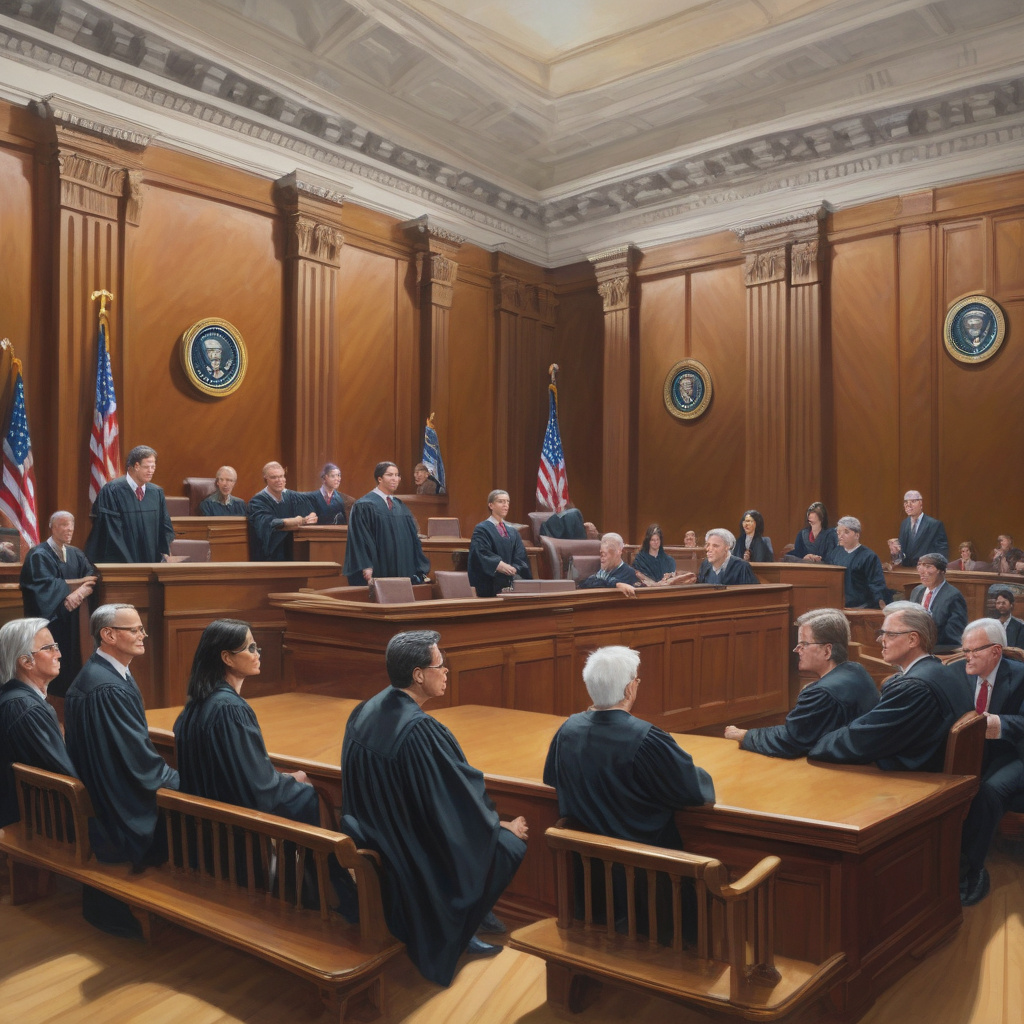Trump Tariffs Deemed Illegal by Federal Trade Court
In a significant legal ruling that could reshape the landscape of U.S. trade policy, the Court of International Trade has declared that the tariffs imposed by former President Donald Trump are illegal. This verdict, delivered by a three-judge panel, challenges the legitimacy of the “reciprocal tariffs” introduced on April 3, as well as those levied against critical trade partners such as Mexico and Canada.
The decision could have immediate implications, potentially leading to the removal of these tariffs within a mere ten days, a scenario that would have far-reaching effects on American businesses, consumers, and the overall economy. But what does this ruling mean for the future of U.S. trade relations and the businesses that have been navigating these turbulent waters?
First, it is essential to understand the context behind the tariffs. Introduced as a part of Trump’s broader trade agenda, the tariffs were aimed at protecting American industries from foreign competition by imposing additional taxes on imports. The rationale was to level the playing field for U.S. manufacturers and encourage domestic production. However, critics argued that these tariffs ultimately hurt consumers by raising prices on a wide array of goods, from electronics to household items.
The panel’s ruling asserts that Trump overstepped his authority in imposing these tariffs. According to legal experts, the Federal Trade Court found that the tariffs did not align with the specific guidelines set forth by Congress, thereby rendering them unconstitutional. This decision is not just a legal victory for opponents of the tariffs but also highlights the ongoing debate over executive power in trade matters.
The implications of this ruling extend beyond legal jargon. If the tariffs are indeed lifted, U.S. businesses that rely on imported goods could see a significant reduction in costs. For instance, companies in the manufacturing sector that depend on components sourced from abroad might benefit from lower input costs, which could lead to increased profit margins and potentially lower prices for consumers. In contrast, businesses that have adapted to the tariff environment might find themselves at a disadvantage, having invested in domestic alternatives that may now become less competitive.
Moreover, the ruling could invigorate trade ties with nations that were adversely affected by the tariffs. Countries such as Canada and Mexico, which have been at the forefront of retaliatory measures, may find renewed opportunities for collaboration with U.S. firms. This could foster a more balanced trade environment and pave the way for a more stable international market.
In the broader picture, the ruling serves as a reminder of the checks and balances inherent in the U.S. government. The judicial system plays a critical role in evaluating the actions of the executive branch, especially in matters as complex and impactful as international trade. This ruling may set a precedent for how future administrations approach trade policy, emphasizing the need for transparency and adherence to legislative intent.
While the immediate future of the tariffs remains uncertain, one thing is clear: the business community is watching closely. Companies across various sectors are bracing for potential changes that could affect their supply chains, pricing strategies, and ultimately, their bottom lines. Retailers, in particular, are keenly aware of the implications of tariff changes as they prepare for the holiday season and beyond.
In conclusion, the Court of International Trade’s ruling against the Trump tariffs marks a pivotal moment in U.S. trade policy. As the potential for these tariffs to vanish looms large, the focus now shifts to how businesses will navigate this new landscape. Will they seize the opportunity to lower prices and expand markets, or will they continue to adapt to a regulated environment that may soon be altered? Only time will tell how this legal decision will play out in the real world.
#TrumpTariffs #TradePolicy #InternationalTrade #FederalCourt #BusinessImpact
